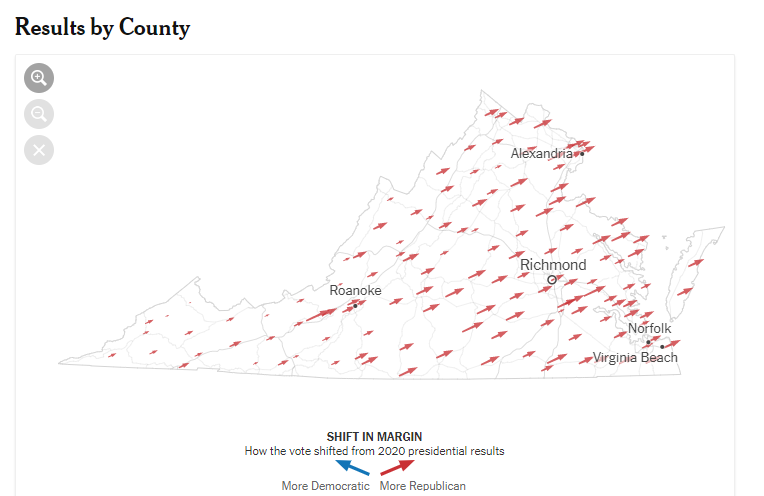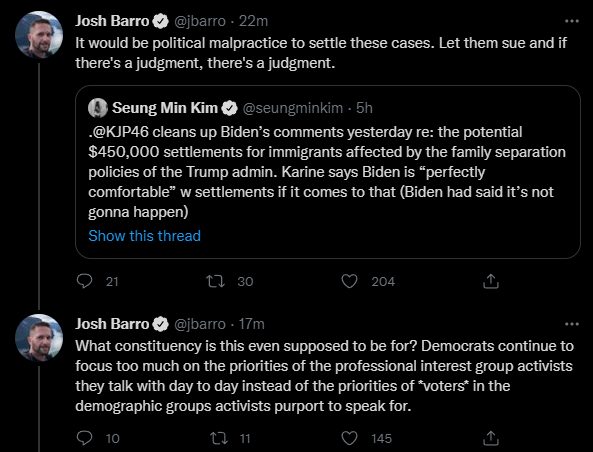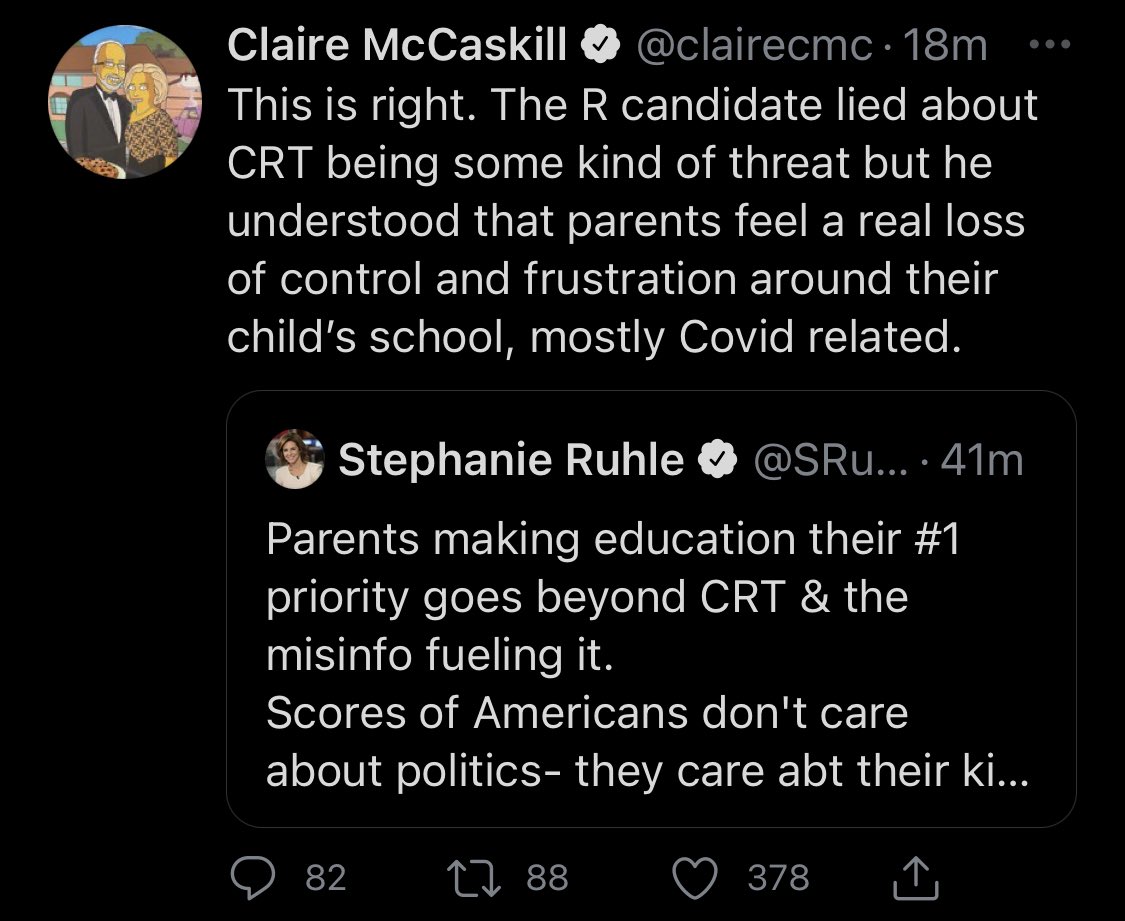
Seems to me this really the map everyone should think long and hard about if they want to talk about Virginia. 

This map blows apart almost all the takes about McAuliffe and Youngkin and CRT and education and suburban parents and school closures and so forth! Because if any of them were true, you could see it on this map. The suburbs would go one way. Other places would be different.
What we see instead is a large, nearly-uniform statewide shift. Big, small, red, blue, city, country, everywhere shifted just about the same.
If you lose ground everywhere, it's not because you lost a battle on an individual issue related to a handful of places or people.
If you lose ground everywhere, it's not because you lost a battle on an individual issue related to a handful of places or people.
What that tells us that instead of lots of little local battles that all happened to come out exactly the same, there's one big battle - the battle of vibes, D vs. R, in the minds of everyone. All the changes look like they were pretty much based on the same thing!
Lots of things might feed into the battle of vibes. Could be anything, really: mechanical factors like incumbency, the general brand of the parties, national positions or politicians.
But voters are on the same brainwave. They're not being microtargeted on specific issues.
But voters are on the same brainwave. They're not being microtargeted on specific issues.
So if Dems want to do better, they have to find ways to look better than Republicans in this big, main-signal way. Seem more dynamic, maybe. More productive. Maybe consider going on the offensive, tearing up the other side. Stand up for some emotionally-evocative core values!
And here's what ISN'T going to work: polling the key group of voters you want to win, and then tailoring policy to them in an effort to nudge them your way. Even if you convince a few, you just end up fighting this big tide with buckets. You need to find a way to change the tide.
By the way, you can make pretty much the same argument comparing NJ to VA. And of course, a lot of this is probably driven by anti-incumbency swings in an off year. But the important thing is that shifts are clearly driven by a national main signal, not penny-ante local stuff.
One last thing: it's not very controversial to assert that economic behavior is driven, at least in a general way, by collectively-experienced "animal spirits" that are produced by many factors combining in a difficult-to-quantify way.
Why should voting behavior be different?
Why should voting behavior be different?
• • •
Missing some Tweet in this thread? You can try to
force a refresh





